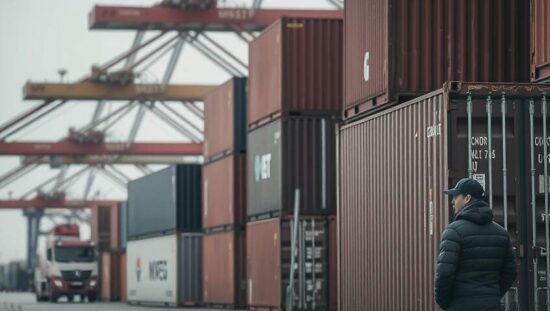The latest trade data reveals a complex and potentially concerning divergence in German import and export price trends for September 2025, highlighting vulnerabilities in the nation’s economy and raising questions about the effectiveness of current policy. While overall import prices were marginally lower than a year prior, a substantial decline in energy prices continues to mask underlying inflationary pressures in other sectors.
The 1.0% decrease in import prices compared to September 2024 is largely attributable to a dramatic 11.0% drop in energy costs. This reduction, however, is beginning to show signs of reversing; energy prices rose by 1.1% from August, suggesting a potential upward trajectory. Excluding energy, import prices showed minimal change, indicating a persistent underlying inflationary current. The increasing cost of imported consumer goods, particularly food, presents a significant area of concern. Prices for staples like coffee, beef, poultry and certain nuts have experienced significant increases, contributing to a 1.1% rise overall compared to September 2024, despite a modest 0.3% decrease from the previous month.
The data paints a particularly stark picture of the effects of global supply chain vulnerabilities and geopolitical instability on food security, as evidenced by the steep price increases for several key agricultural imports. While some commodities like sugar and olive oil have seen price decreases, these are insufficient to offset the broader inflationary trend.
On the export side, the situation is less encouraging. Export prices rose by 0.6% compared to September 2024, defying suggestions of a loosening inflationary pressure within the German economy. This is driven primarily by rising consumer goods prices, particularly food, which underscores the impact of global inflation on German manufacturers. The 47.1% increase in the price of exported coffee alone is a worrying indicator of the impact of disrupted supply chains and rising input costs on German businesses.
The divergence between declining import energy prices and rising export prices for certain consumer goods reflects a challenging economic dynamic. While cheaper energy provides some relief to import costs, it does not necessarily translate into lower price points for consumers. Instead, rising export prices could further strain German competitiveness on the global market and contribute to a widening trade deficit.
The situation demands a more granular analysis to identify structural vulnerabilities and targeted policy interventions. While the ongoing decline in energy prices provides a temporary reprieve, the underlying inflationary pressures in other sectors warrant close monitoring and potentially more decisive action. The government needs to consider strategies to mitigate the impact of volatile food prices, bolster domestic food production and support businesses struggling with rising input costs. Failure to address these issues risks undermining the long-term stability and competitiveness of the German economy.





